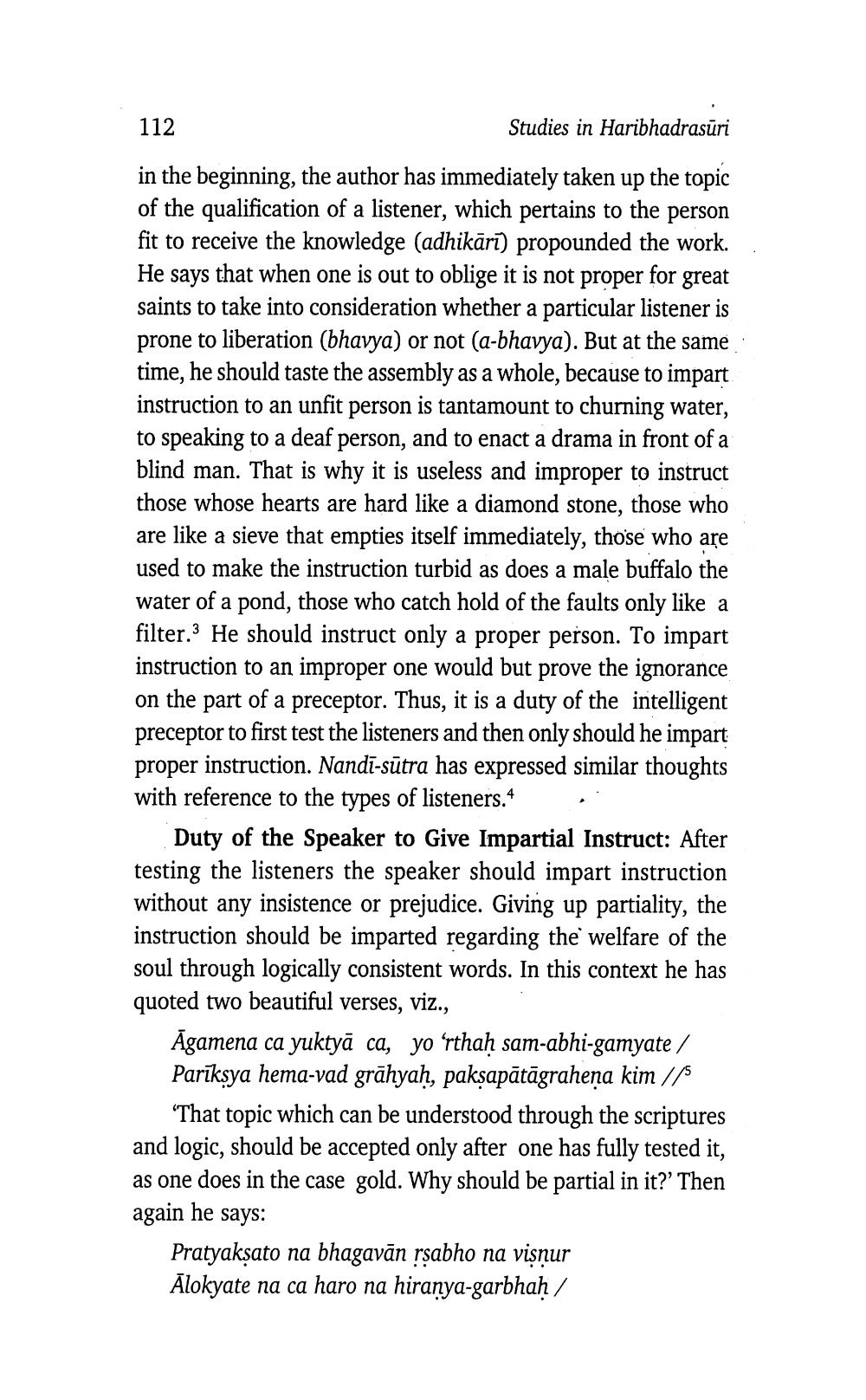________________
112
Studies in Haribhadrasūri
in the beginning, the author has immediately taken up the topic of the qualification of a listener, which pertains to the person fit to receive the knowledge (adhikārī) propounded the work. He says that when one is out to oblige it is not proper for great saints to take into consideration whether a particular listener is prone to liberation (bhavya) or not (a-bhavya). But at the same time, he should taste the assembly as a whole, because to impart instruction to an unfit person is tantamount to churning water, to speaking to a deaf person, and to enact a drama in front of a blind man. That is why it is useless and improper to instruct those whose hearts are hard like a diamond stone, those who are like a sieve that empties itself immediately, those who are used to make the instruction turbid as does a male buffalo the water of a pond, those who catch hold of the faults only like a filter. He should instruct only a proper person. To impart instruction to an improper one would but prove the ignorance on the part of a preceptor. Thus, it is a duty of the intelligent preceptor to first test the listeners and then only should he impart proper instruction. Nandī-sūtra has expressed similar thoughts with reference to the types of listeners.4
Duty of the Speaker to Give Impartial Instruct: After testing the listeners the speaker should impart instruction without any insistence or prejudice. Giving up partiality, the instruction should be imparted regarding the welfare of the soul through logically consistent words. In this context he has quoted two beautiful verses, viz.,
Āgamena ca yuktyā ca, yo ‘rthaḥ sam-abhi-gamyate / Parīksya hema-vad grāhyaḥ, pakşapātāgrahera kim //
“That topic which can be understood through the scriptures and logic, should be accepted only after one has fully tested it, as one does in the case gold. Why should be partial in it?' Then again he says:
Pratyakşato na bhagavān rşabho na vişnur Alokyate na ca haro na hiranya-garbhaḥ/




